A&S Faculty News
February 2017
Noel an Expert for WalletHub
Michael Noel, associate professor in the Department of Economics, was among a panel of experts consulted by wallethub.com for insights on the differences between the American work structure and that of other countries. In a question-and-answer format, the Feb. 28 story quoted Noel's in-depth responses to queries about why Americans work more than other nationalities, whether that work translates into higher productivity, the length of the ideal work week, and what government policies could be adopted to improve American workers' quality of life.
Hayhoe Says Enjoy Warm Winter
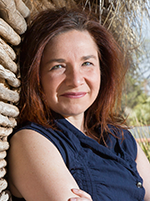 Katharine Hayhoe, associate professor in the Department of Political Science and Director
of TTU's Climate Science Center was quoted Feb. 23 in News of Chicago/The Atlantic
in an article that asks, "Is it OK to Enjoy the Warm Winters of Climate Change?" Given
the unusually pleasant weather this February—typically winter's harshest month across
the United States—those concerned about climate change may find themselves asking
ethical or existential concern as well as scientific ones. Hayhoe was quoted as saying
that people shouldn't hesitate to enjoy unseasonably warm days, whether or not they
are caused by climate change. "It's a good example of how all of the symptoms of a
changing climate are not negative. And if there is something good, then enjoying it
doesn't make [climate change] any better or worse than it would be otherwise," she
told the publication. "As it gets warmer, the negative impacts outweigh the positive
impacts," she said. "This will first look like hotter summers, pests moving northward,
and our air-conditioning and water bill going up. Having these unusual days that we
really notice, it makes us more aware of how other things are changing, too."
Katharine Hayhoe, associate professor in the Department of Political Science and Director
of TTU's Climate Science Center was quoted Feb. 23 in News of Chicago/The Atlantic
in an article that asks, "Is it OK to Enjoy the Warm Winters of Climate Change?" Given
the unusually pleasant weather this February—typically winter's harshest month across
the United States—those concerned about climate change may find themselves asking
ethical or existential concern as well as scientific ones. Hayhoe was quoted as saying
that people shouldn't hesitate to enjoy unseasonably warm days, whether or not they
are caused by climate change. "It's a good example of how all of the symptoms of a
changing climate are not negative. And if there is something good, then enjoying it
doesn't make [climate change] any better or worse than it would be otherwise," she
told the publication. "As it gets warmer, the negative impacts outweigh the positive
impacts," she said. "This will first look like hotter summers, pests moving northward,
and our air-conditioning and water bill going up. Having these unusual days that we
really notice, it makes us more aware of how other things are changing, too."
Stoll Published in Special Edition
Mark Stoll, Professor in the Department of History, was republished in Environmental History's "40th Anniversary Virtual Edition," a collection the magazine's editors say represents "path-breaking scholarship that has shaped our field." Stoll was noted for his "Milton in Yosemite: Paradise Lost and the National Parks Idea," which published in Environmental History 13, no. 2 (April 2008): 237-274.
Levario on Sheriff's ICE Partnership
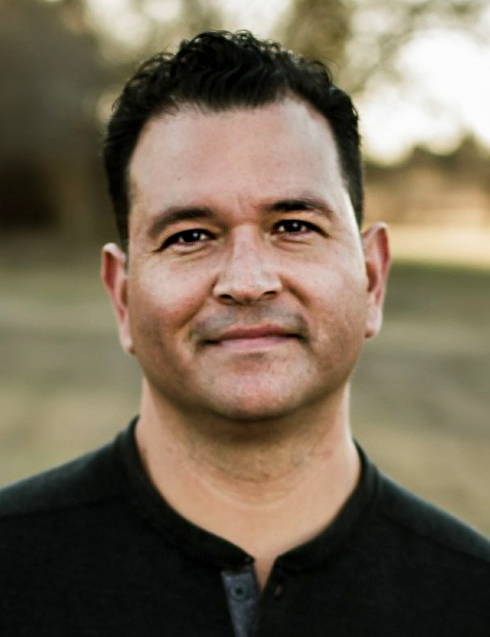 Miguel Levario, associate professor in the Department of History, was interviewed,
was interviewed in a Feb. 21 FOX-34 news story about the Lubbock County Sheriff's
Office partnering with U.S. Immigration and Customs Enforcement (ICE) to identify
undocumented immigrants who are taken into custody. Although the sheriff's office
has said the cooperation authorizes local jail staff to interview only those individuals
who have been arrested on other charges, Levario told the television station that
the agreement will create a layer of mistrust in immigrant communities. The mistrust
could cause individuals to refrain from reporting local crimes. "I think that many
police officers feel that this may handicap their efficiency and effectiveness with
local crimes and working with the community. I think it does disrupt their relationship
with the community," Levario said in the interview.
Miguel Levario, associate professor in the Department of History, was interviewed,
was interviewed in a Feb. 21 FOX-34 news story about the Lubbock County Sheriff's
Office partnering with U.S. Immigration and Customs Enforcement (ICE) to identify
undocumented immigrants who are taken into custody. Although the sheriff's office
has said the cooperation authorizes local jail staff to interview only those individuals
who have been arrested on other charges, Levario told the television station that
the agreement will create a layer of mistrust in immigrant communities. The mistrust
could cause individuals to refrain from reporting local crimes. "I think that many
police officers feel that this may handicap their efficiency and effectiveness with
local crimes and working with the community. I think it does disrupt their relationship
with the community," Levario said in the interview.
Ramkumar On India's Cotton Use
Seshadri Ramkumar, professor in the Department of Environmental Toxicology/The Institute for Environmental & Human Health, wrote an article about India's cotton consumption in the Feb. 21 Cotton Association of India. Ramkumar reported that India is estimated to consume 29.5 million bales of cotton, this season ending this September, a revision up from its earlier estimate of 29 million bales. With a total of about 40.5 million bales, the available surplus at the end of this season will be an estimated 11 million bales, down from the previous estimate of 11.4 million bales.
McKee, Perkins Look at Trump Polls
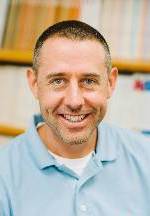 Seth Mcee, associate professor, and Jared Perkins, visiting professor, both in the
Department of Political Science, were interviewed in a Feb. 20 FOX-34 news report
about a new University of Texas/Texas Tribune poll of Texans. The poll shows President Donald Trump's approval rating with Republicans is 81 percent,
and with Democrats it is 7 percent, according to the transcript of the news story
"New Texas Poll Shows divide Between Dems, GOP on President Trump." McKee told the TV station that the numbers likely reflect a general approval of the
president without much emphasis on specifics. "To me it sort of looks like a generic
number," McKee said. "I think that number among Texas Republicans is more reflective
of, it's our team now. I think the Democratic number is what you'd expect. It's basically
the converse of that." Perkins told FOX-34 that the support Trump receives from Republicans
is a direct result of his high visibility on social media and with his speeches. "I
think he has a little more latitude even among his supporters to do things they might
not always agree with because they know he's actually working and I think that's a
perception he has done a pretty good job of creating in the past few weeks," Perkins
said.
Seth Mcee, associate professor, and Jared Perkins, visiting professor, both in the
Department of Political Science, were interviewed in a Feb. 20 FOX-34 news report
about a new University of Texas/Texas Tribune poll of Texans. The poll shows President Donald Trump's approval rating with Republicans is 81 percent,
and with Democrats it is 7 percent, according to the transcript of the news story
"New Texas Poll Shows divide Between Dems, GOP on President Trump." McKee told the TV station that the numbers likely reflect a general approval of the
president without much emphasis on specifics. "To me it sort of looks like a generic
number," McKee said. "I think that number among Texas Republicans is more reflective
of, it's our team now. I think the Democratic number is what you'd expect. It's basically
the converse of that." Perkins told FOX-34 that the support Trump receives from Republicans
is a direct result of his high visibility on social media and with his speeches. "I
think he has a little more latitude even among his supporters to do things they might
not always agree with because they know he's actually working and I think that's a
perception he has done a pretty good job of creating in the past few weeks," Perkins
said.
Lopez's Alternative to Migrant Ban
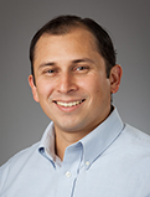 Armando Lopez, assistant professor in the Department of Economics, was interviewed
by Lubbock television station KLBK for a report that aired Feb. 17. The story, "TTU Professor Proposes Alternative to Immigration Ban," focused on Lopez's estimation that the ban would have a negative impact on the U.S.
economy. "It's not like it's free to enforce the border and to enforce these immigration
rules," he told the station. "If you remove one immigrant, nothing is going to happen,"
he said. "But when you remove a large chunk of the labor force you would have a very
big impact on businesses because for many of them you don't have an easy substitution."
He proposed an alternative to Trump's immigration ban that he said gives a more long-term
solution: a Guest Worker Program that will give a worker permit to an immigrant who
is employed in the U.S. for an allotted amount of years. Then the individual will
return to their home country, or given the opportunity to apply for citizenship. "You
have a million at a time for a few years and then they go back," Lopez told KLBK.
"You have a different million and then that way also more people have a chance to
reap the benefits of working."
Armando Lopez, assistant professor in the Department of Economics, was interviewed
by Lubbock television station KLBK for a report that aired Feb. 17. The story, "TTU Professor Proposes Alternative to Immigration Ban," focused on Lopez's estimation that the ban would have a negative impact on the U.S.
economy. "It's not like it's free to enforce the border and to enforce these immigration
rules," he told the station. "If you remove one immigrant, nothing is going to happen,"
he said. "But when you remove a large chunk of the labor force you would have a very
big impact on businesses because for many of them you don't have an easy substitution."
He proposed an alternative to Trump's immigration ban that he said gives a more long-term
solution: a Guest Worker Program that will give a worker permit to an immigrant who
is employed in the U.S. for an allotted amount of years. Then the individual will
return to their home country, or given the opportunity to apply for citizenship. "You
have a million at a time for a few years and then they go back," Lopez told KLBK.
"You have a different million and then that way also more people have a chance to
reap the benefits of working."
Levario on Cutting Sanctuary Cities
Miguel Levario, associate professor in the Department of History, was interviewed for a Feb. 16 story in the Lubbock Avalanche-Journal: "Sanctuary Cities Bill Could Put Police on Front Line in Immigration Enforcement." Legislation introduced by state Sen. Charles Perry (R-Lubbock) would, if passed, ban state funding to sanctuary cities. Some people fear such a law could change the role of local law enforcement and promote racial profiling by officers. Levario told the newspaper that the proposed legislation would put officers in a tough situation: if they satisfy the requests from Immigration and Customs Enforcement it could violate someone's constitutional rights by detaining them without a legal warrant, and if officers don't satisfy the request, they could be in violation of the state law. "This is now a politicized issue, and it is racist," Levario was quoted as saying. "Sanctuary cities are not more crime-ridden — immigrants are less likely to be violent criminals than people born here, by far."
Lewis Talks about Flynn Quitting
Col. Dave Lewis, professor of practice in the Department of Political Science, was interviewed by FOX-34 television for the Feb. 15 report, "Russian Connection Could Spell Trouble for Trump." The story invited Lubbock-area experts to speculate on what might happen if reports on the Trump administration's pre-inauguration contact with Russia prove nefarious. In connection with the resignation of National Security Adviser Michael Flynn, and phone conversations he had with Russians, Col. Lewis told the television station: "As a former director of the Defense Intelligence Agency, it's not like it's his (Flynn's) first brush with these types of things," Lewis said. "He certainly had to have known what was going on, so that tells me that there is probably more layers to this story than we know now or may ever know."
Walter to Study Spanish Mission
Tamra Walter, associate professor in the Department of Sociology, Anthropology & Social Work, was awarded $30,000 from the Texas Historical Commission in mid-February for her research project on Mission San Lorenzo de la Santa Cruz. The Spanish mission to the Lipan Apaches was in operation between 1762 and 1771 and is 40 miles north of Uvalde on State Highway 55, along the Nueces River outside the town of Camp Wood.
Witmore Values Digital Artifacts
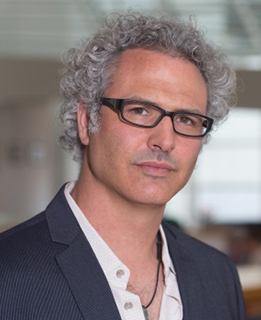 Christopher Witmore, associate professor of archaeology and classic is the Department
of Classical & Modern Languages & Literatures, was quoted an article posted Feb. 13
at Archaeology magazine. "Digging Up Digital Music" tells the story of a few early artifacts from the dawn of the computer age: the Computing
Machine Laboratory in Manchester, England; the Mark I computer that generated its
first "notes" in 1948, sounding "like a cello playing underwater"; and the Mark II
computer that in 1951 was programmed to play "God Save the King." Whitmore observed:
"The digital world moves so fast, it's constantly refreshing itself to such a degree
that it is creating all kinds of opportunities for archaeology," he was quoted as
saying. "Archaeology is rich enough to encompass all of these things."
Christopher Witmore, associate professor of archaeology and classic is the Department
of Classical & Modern Languages & Literatures, was quoted an article posted Feb. 13
at Archaeology magazine. "Digging Up Digital Music" tells the story of a few early artifacts from the dawn of the computer age: the Computing
Machine Laboratory in Manchester, England; the Mark I computer that generated its
first "notes" in 1948, sounding "like a cello playing underwater"; and the Mark II
computer that in 1951 was programmed to play "God Save the King." Whitmore observed:
"The digital world moves so fast, it's constantly refreshing itself to such a degree
that it is creating all kinds of opportunities for archaeology," he was quoted as
saying. "Archaeology is rich enough to encompass all of these things."
McKee on Increasing Latino Vote
Seth McKee, associate professor in the Department of Political Science, was quoted in a Feb. 13 FOX-34 report about the number of Latino voters in Texas. The story, "Texas Sees Increase in Latino Vote" reported that nearly 30 percent more Texas Latinos voted in 2016 than in 2012, while non-Latino voters increased by slightly more than nine percent. "Even with this jump in their participatory numbers, they're still way too low to threaten Anglo preferences for a Republican majority in the state," McKee was quoted as saying. He also observed: "Politics is all about an action and a reaction and this is the thing that makes the Latino question in Texas so interesting is that if Latinos do become more mobilized and they start voting at higher rates, what do you think Anglos are going to do?" McKee asked. "They're probably going to participate more as well."
Olson Helps Science Teachers
Matt Olson, Associate Professor in the Department of Biological Sciences, assisted Patricia Hawley, a Professor of Educational Psychology in the College of Education, in creating a workshop that is designed to give science teachers more confidence when teaching evolution, according to a Feb. 8 article in Texas Tech Today. "Declawing the Dinosaur in Your Classroom: Reducing Teachers' Anxiety about Evolution" is meant for teachers who find themselves in the crossfire of the creation-vs.-evolution debate and promises tools to help them allay misconceptions, reconcile faith and science for themselves and answer questions from schoolchildren and their parents.
Perkins on New Education Secretary
Jared Perkins, Visiting Professor in the Department of Political Science, was quoted in a Feb. 7 FOX-34 news segment about the confirmation of Betsy DeVos as Secretary of Education. Perkins told the Lubbock television station that the split confirmation vote indicates an atmosphere that does not bode well senate Republicans and Democrats working well together in the future. "We're definitely going to see a difference in what's being talked about in Washington and a shift from standardization and testing to a conversation about the expansion of charter schools and vouchers," he was quoted as saying. "Whether or not that affects things on the ground, I think that really depends on the political climate in the states."
College of Arts & Sciences
-
Address
Texas Tech University, Box 41034, Lubbock, TX 79409-1034 -
Phone
806.742.3831 -
Email
arts-and-sciences@ttu.edu
